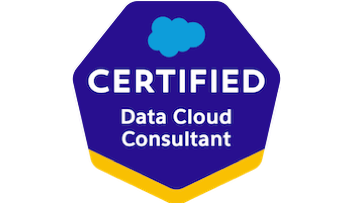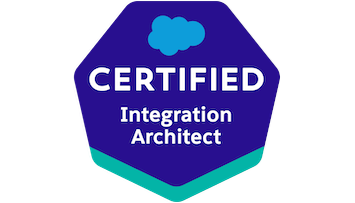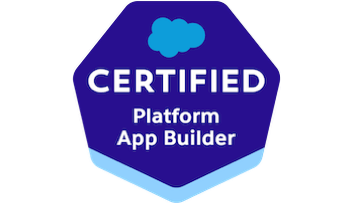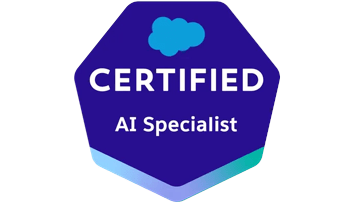When I published my last article: “Is Salesforce Losing Focus on Marketing Cloud Engagement?”, I wasn’t entirely sure what to expect. I thought it would stir some conversation, maybe spark a few comments. Instead, it ignited a full blown debate across LinkedIn and the HowToSFMC Slack channel. Some people nodded along, others challenged my perspective, and many added their own deeply insightful takes.
But the best part? It pushed the conversation beyond simple speculation and into something more grounded and meaningful. The debate didn’t just highlight frustrations or fears. It also brought clarity and reassurance about something I’ve always felt:
SFMC (or ExactTarget, MCE, whatever you want to call it) still has a very valid future.
The path forward might look different than it did ten years ago, but the core value of SFMC remains unparalleled. And, honestly, the past week has only solidified something I already knew deep down. I love this platform. Like, really love it. And yes, I still hope SFMC and I can grow old together, buy a quaint farmhouse outside Lisbon, and spend our days crafting our own port wine while reminiscing about all those quirky AMPscript snippets and SQL queries that brought us closer over the years.
But before we get too lost in the romance of it all, let’s unpack where we stand today, where SFMC is heading, and what it all means for marketers, engineers, and companies who’ve hitched their wagons to this marketing behemoth.
The debate brought clarity: SFMC isn’t going anywhere
The conversations that unfolded after my last article highlighted something important – yes, Salesforce’s focus is shifting, but no, SFMC isn’t being abandoned.
In fact, what emerged is a clearer picture of Salesforce’s strategy: Data Cloud is the new backbone, with products like MC Growth and Advanced being built directly on top of it. But that doesn’t mean SFMC is on life support.
As one comment in the Linkedin thread put it perfectly:
“I still believe SFMC is a great product. And IMHO should be able to retain its leading position. My concern is mainly on whether Salesforce will retire SFMC without offering a sufficient alternative.”
And that’s really the heart of it. SFMC is still highly capable, still widely adopted, and still the go-to platform for complex, enterprise-level marketing automation. Sure, Salesforce is pushing Data Cloud and MC Growth hard, but SFMC is still here, still evolving, and still very much part of the bigger picture.
It’s like when a company releases a shiny new product but still keeps the old, reliable one around because it just works. And, let’s be honest, the new one isn’t quite ready for the heavy lifting yet.
Now, I know the competition has been stepping up. Platforms like Braze, MessageGears, and Adobe are offering sleek, modern solutions. But, and I say this with all the bias of a long-term partner – none of them offer what SFMC does.
Here’s why SFMC still holds the crown in my book:
- It’s built for complexity. SFMC doesn’t shy away from complicated data models, intricate automations, or granular personalization. Whether you’re orchestrating multi-step journeys or dynamically personalizing emails with AMPscript, it handles it all.
- It scales. Like, really scales. We’re talking millions of emails (hundreds of millions, using their option of dedicated MTAs), SMS, push notifications. All going out at lightning speed without breaking a sweat.
- It’s endlessly flexible. With tools like Automation Studio, Journey Builder, AMPscript, SSJS, and SQL, SFMC lets you build pretty much anything you can dream up (which I personally can vouch for, as I actually DID build pretty much anything I could dream up).
And let’s not forget the deep Salesforce CRM integration. Even if it’s not always seamless (I see you, disconnected object relationships), it still offers a level of cross-cloud synergy that most competitors can’t match.
This is what makes SFMC special. It’s not trying to be the one-size-fits-all solution that MC Growth is aiming for. It’s a customizable, powerful marketing hub that gives marketers, developers, and architects the freedom to build tailored experiences.
I still want to grow old with SFMC. Here’s hoping we make it.
Okay, back to that Lisbon farmhouse for a moment.
I’m not ready to walk away from SFMC. We’ve been through too much together. I’ve weathered Journey Builder’s growing pains (not to mention early days of Marketing Cloud Connect back in 2016), wrestled with AMPscript errors at 2 AM, and even learned to love the quirks of Automation Studio.
I imagine a future where SFMC and I settle down in the Portuguese countryside, tending to our grapevines, hand-coding AMPscript for fun, and bottling our own port wine. Maybe we’ll even name it something quirky: “SQL Select Red” or “AMPscript Reserve.”
But for that dream to become reality, SFMC needs to keep evolving. It doesn’t have to become MC Growth, but it does need to stay competitive, flexible, and future-proof.
How existing SFMC customers should embrace the transition
If you’re a current SFMC customer, you might be wondering: “What now?” With all the recent debate surrounding SFMC’s future, it’s understandable that some current customers might feel uneasy. You may have wondered whether you made the right choice or if SFMC is still the leading marketing automation platform it once was. The short answer is yes, you did make the right choice, and SFMC continues to be one of the most powerful and flexible marketing automation solutions available today.
Let’s start with what SFMC still does better than most. Scale and complexity are two areas where SFMC consistently outperforms competitors. It remains the go-to platform for enterprises managing millions of contacts, orchestrating sophisticated multi-step journeys, and delivering hyper-personalized campaigns across multiple channels. The depth of functionality, from data extensions and relational data models to advanced scripting with AMPscript and SSJS, gives marketing teams unmatched control over their campaigns. If your marketing team thrives on building intricate workflows and leveraging data-driven personalization, SFMC still offers a level of flexibility and power that’s hard to beat.
Reliability is another cornerstone of SFMC’s continued relevance. The platform has been powering marketing campaigns for some of the world’s largest brands for well over a decade. It has weathered changes in technology, shifts in customer expectations, and evolving market trends. While it’s true that Salesforce’s focus is shifting toward Data Cloud and MC on Core, SFMC remains deeply entrenched in the marketing stacks of global enterprises. Platforms that have been this successful for so long don’t just fade away, especially when they’re still delivering value at scale.
It’s also important to recognize that SFMC is not being abandoned by Salesforce. While the pace of headline-grabbing innovation may have slowed compared to the early days of Journey Builder, SFMC continues to receive updates, improvements, and tighter integrations with other Salesforce products, especially Data Cloud. These integrations are not signs of a dying platform but rather an effort to ensure SFMC remains a key part of the evolving Salesforce ecosystem. Salesforce has been clear that SFMC will continue to be supported and enhanced, making it a stable choice for businesses that have built complex marketing operations around it.
One of the most reassuring aspects of SFMC is the strength of its community. The recent discussions on LinkedIn and HowToSFMC Slack highlighted how deeply people care about this platform. The SFMC ecosystem is filled with experienced developers, architects, consultants, and marketers who are constantly pushing the boundaries of what the platform can do. This collective expertise is a huge asset to anyone using SFMC, providing access to a wealth of knowledge, best practices, and creative problem-solving. The platform might not be perfect, but the community makes sure that users get the most out of it.
Another factor to consider is the cost and complexity of migrating to another platform. Enterprise-level migrations are time-consuming, expensive, and fraught with risk. SFMC offers stability and maturity that many newer platforms simply can’t match. It provides a comprehensive set of features that continue to support complex marketing strategies, giving customers peace of mind that their investment is still sound. This stability allows businesses to focus on improving their marketing efforts rather than worrying about platform limitations or the challenges of starting over with a new system. It’s simply reliable!
Perhaps most importantly, current SFMC customers are uniquely positioned to benefit from Salesforce’s broader strategic shifts. The deepening integration between SFMC and Data Cloud means marketers can take advantage of real-time data unification and enhanced segmentation while still using SFMC as their primary execution engine. This hybrid approach offers the best of both worlds: proven marketing automation capabilities with the added power of real-time data and AI-driven insights from Agentforce on Data Cloud.
So if you’re currently using SFMC, rest easy. You’ve made a solid investment in a platform that still leads the market in many critical areas. While Salesforce’s roadmap is evolving, SFMC remains a central pillar in the marketing automation space. It continues to deliver results, support complex use cases, and adapt to the changing landscape. You’re not just using a powerful tool. You’re part of a vibrant ecosystem that’s still growing and evolving.
The answer isn’t to panic or start planning a migration to MC Growth. Instead, it’s about strategically embracing the shift while continuing to maximize SFMC’s strengths.
Here’s what that looks like:
- Leverage Data Cloud, but don’t abandon SFMC. Data Cloud is powerful for unifying customer profiles and enhancing segmentation, but SFMC is still the best execution engine for emails, SMS, push, and more.
- Double down on personalization. Use SFMC’s scripting tools (AMPscript, SSJS, SQL) to create hyper-personalized campaigns that competitors struggle to match. In general: ensure full adoption and harvest solid ROI from this investment.
- Integrate smartly. Connect SFMC with Salesforce CRM and Data Cloud to create a unified ecosystem, but maintain SFMC as your proven execution layer.
- Stay updated. Keep an eye on Salesforce’s roadmap. They’re still releasing enhancements to SFMC, and Data Cloud integration points will only improve.
If you are unsure how to benefit from your current licenses, or whether or not you are mature for considering Data Cloud, reach out to me at CloudWise, for an informal introduction to how I can help you drive your martech forward.
What this means for companies considering SFMC
If you’re evaluating SFMC as a potential marketing automation platform, here’s what you need to know:
- It’s still the leader in enterprise marketing automation. If your use cases involve complex journeys, massive scale, or advanced personalization, SFMC is still the best fit.
- MC Growth isn’t ready to replace it (yet). While MC Growth is promising, it lacks many of the enterprise-grade features SFMC offers today. So SFMC remains the stronger choice for complex needs.
- Consider your data strategy. If you’re all in on Salesforce and want to leverage Data Cloud, SFMC gives you the best execution layer while maintaining tight CRM integration.
In short, SFMC is still an excellent investment. You just need to be mindful of Salesforce’s evolving ecosystem and how Data Cloud plays into the future. If you need some more detailed advise from someone who has been working with clients just like you, reach out to me at CloudWise, and let’s have a chat on how you make the most informed decision, and secure solid ROI on your investment.
For engineers and architects: how to stay relevant
If you’re an SFMC engineer, architect, or consultant, this shift presents both opportunities and challenges.
- Get familiar with Data Cloud. It’s clear that Data Cloud will be central to Salesforce’s marketing future. Understanding how to connect SFMC with Data Cloud will be crucial.
- Keep honing your SFMC skills. AMPscript, SSJS, SQL, Automation Studio, and Journey Builder remain invaluable. As long as SFMC is powering major campaigns, these skills will stay in high demand.
- Adapt to hybrid architectures. Many clients will be using SFMC alongside Data Cloud, MC Growth, or even external tools. Being able to architect integrated solutions will make you indispensable.
- Stay ahead of the AI game. Agentforce is here to stay, no doubt about it. Understand how it works, and how it connects with Data Cloud. I can’t speak highly enough about this comprehensive Agentforce workshop, with plenty of hands-on work (and it’s free!).
The key here is flexibility: Being able to move between platforms while maintaining a deep understanding of SFMC’s unique strengths, and this is why you should consider reviewing you learning path. Personally, I can recommend obtaining following certifications:

Data Cloud Consultant
As Salesforce pivots toward Data Cloud as the core of its marketing automation strategy, the Data Cloud Consultant certification becomes essential. This certification equips professionals with the skills to design, implement, and manage Data Cloud solutions, including data ingestion, harmonization, identity resolution, and segmentation.
In the context of SFMC, Data Cloud acts as the centralized hub for customer data fueling segmentation, personalization, and real time engagement. A Data Cloud Consultant understands how to:
- Integrate Data Cloud with SFMC to enhance audience segmentation and enable real-time data-driven campaigns.
- Connect disparate data sources into a unified customer profile, bridging the gap between marketing, sales, and service.
- Leverage identity resolution to maintain data hygiene, enabling more accurate targeting and personalization.
With Salesforce’s push toward Data Cloud centric architectures, professionals holding this certification will be crucial in helping businesses transition smoothly, ensuring that their marketing strategies are data rich and future proof.

Administrator
While often viewed as an entry level certification, the Salesforce Administrator credential remains highly relevant, especially as MC Growth and Advanced become more tightly integrated into the Salesforce Core platform.
As the marketing ecosystem evolves, administrators will:
- Manage user access, security, and permissions, ensuring that Data Cloud, SFMC, and MC Growth are correctly configured and integrated.
- Maintain data integrity and workflows, especially with MC Growth’s reliance on native Salesforce objects and flows.
- Customize and optimize the user experience in tools like MC Growth and Sales Cloud, helping marketing and sales teams collaborate more effectively.
Additionally, as Data Cloud and MC Growth become more embedded in Salesforce Core, administrators will need to manage cross cloud integrations, ensuring seamless data flow between CRM, marketing, and analytics. Having a solid grasp of Salesforce administration will be critical for supporting this next gen marketing architecture.

Data Architect
A Salesforce Data Architect ensures that the underlying data structures within the CRM are built to support complex marketing and sales processes. This includes:
- Designing scalable data models that align with the business’s customer lifecycle, from lead acquisition to loyalty programs. Ensuring that data flows smoothly between Sales Cloud, Service Cloud, Marketing Cloud, and Data Cloud.
- Implementing data normalization and optimization strategies to reduce redundancies, improve system performance, and ensure that marketers are working with clean, reliable data.
- Defining relationship models between objects to support complex segmentation and personalization use cases in SFMC and MC Growth.
- Establishing data governance frameworks, including field-level security, sharing rules, and data retention policies, ensuring compliance with regulations like GDPR and CCPA while enabling rich personalization.
In the context of the evolving Salesforce marketing ecosystem, a well architected CRM platform becomes the foundation for advanced marketing use cases. With Data Cloud acting as a real-time data unification layer, the Salesforce Data Architect ensures that CRM data is not only structured correctly but is also primed for integration, allowing marketing teams to build highly targeted, data-driven campaigns.
As MC Growth and Advanced continue to grow, the role of the Data Architect will become even more critical. They’ll be responsible for ensuring that marketing, sales, and service teams are working from a single source of truth, maximizing the potential of Salesforce’s multi-cloud ecosystem.

Integration Architect
With Salesforce increasingly pushing for connected ecosystems, the Salesforce Integration Architect certification has become invaluable. As Data Cloud becomes the nerve center for customer data, the demand for seamless cross-cloud and external integrations is skyrocketing.
This certification ensures that professionals can:
- Design and implement scalable integration solutions that connect SFMC, Data Cloud, Sales Cloud, Service Cloud, and external systems (e.g., ERPs, CDPs, data warehouses).
- Leverage APIs, MuleSoft, and middleware to synchronize data between systems in real-time or via batch processes. Essential for up-to-date customer profiles and marketing triggers.
- Ensure data consistency and performance optimization, especially when SFMC is used alongside Data Cloud for segmentation and personalization.
As Data Cloud sits at the heart of Salesforce’s marketing future, Integration Architects will play a crucial role in ensuring data flows smoothly. Empowering marketers to run highly personalized, real-time campaigns.
Consider yourself warned. This exam is really tough, and multiple experienced and knowledgable individuals, myself included, needed multiple attempts before successfully passing it!

Platform App Builder
As Salesforce continues to expand its multi-cloud ecosystem, the Salesforce Platform App Builder certification has become increasingly valuable. Especially in the context of marketing operations that demand customized workflows, automations, and user interfaces. This certification validates the ability to design, build, and deploy custom applications on the Salesforce Platform, without the need for deep coding expertise.
In the evolving landscape where SFMC, Data Cloud, MC Growth, and Salesforce CRM need to work in harmony, the Platform App Builder plays a crucial role in bridging gaps and enhancing user experiences.
A Salesforce Platform App Builder brings value to the marketing ecosystem by:
- Creating custom applications that extend Salesforce CRM functionalities, enabling marketers to manage campaigns, leads, and customer data more effectively. For instance, building a custom campaign management app that integrates directly with SFMC or MC Growth, giving marketers more control over segmentation and targeting.
- Designing streamlined user experiences through custom Lightning pages and components, making it easier for marketing and sales teams to access relevant data and tools without switching platforms.
- Automating complex business processes using Flows, Process Builder, and Lightning App Builder, helping marketing teams trigger actions based on customer behaviors, like automatically enrolling a lead into an SFMC journey when they reach a specific engagement score.
- Integrating SFMC and Data Cloud with CRM workflows, ensuring that customer data flows smoothly and that marketing teams can act on insights in real time.
- Ensuring scalability and flexibility by designing apps that adapt to evolving business needs, especially as Salesforce’s marketing suite continues to grow and integrate more tightly with Data Cloud and MC Growth.
As Salesforce shifts toward more unified, data driven marketing solutions, the Platform App Builder becomes a key enabler for tailoring Salesforce to specific business needs. Whether it’s building custom dashboards for marketing analytics, creating workflows that bridge CRM and SFMC, or developing interfaces that simplify data integration, App Builders play a pivotal role in making Salesforce work harder, and smarter, for marketing teams.

Salesforce AI Specialist (Soon to be Certified Agentforce Specialist)
As AI continues to reshape the marketing landscape, the Salesforce AI Specialist certification has become one of the most in-demand and hyped credentials in the ecosystem. This certification validates expertise in implementing and managing Salesforce’s AI-driven tools, like Einstein and Agentforce, within various Salesforce clouds, including Marketing Cloud, Data Cloud, and Sales Cloud. However, with the rapidly growing focus on AI, Salesforce has announced a major change: starting in March 2025, the AI Specialist certification will be rebranded as the Certified Agentforce Specialist, signaling a deeper integration of AI capabilities into Salesforce’s core product suite.
The relevance of this certification, especially in the context of Salesforce’s evolving marketing ecosystem, cannot be overstated. AI is now embedded across multiple clouds, and marketers are expected to not only use but optimize AI tools to stay competitive.
A Salesforce AI Specialist plays a pivotal role in:
- Leveraging AI-driven segmentation in Data Cloud to create hyper-personalized audiences based on behavioral patterns, purchase history, and predictive analytics.
- Using AI tools to analyze campaign performance and generate actionable insights, helping marketing teams iterate and improve strategies based on data-driven feedback.
- Staying ahead of the curve by understanding how AI impacts data privacy, personalization, and ethical marketing practices, ensuring that AI-driven campaigns remain compliant and customer-centric.
- Utilizing Agents to support and empower Sales, Marketing and Customer Service processes across the business.
The upcoming transition to Certified Agentforce Specialist marks a shift towards more advanced and integrated AI capabilities within Salesforce. Agentforce aims to go beyond traditional AI implementations, focusing on intelligent agents that can autonomously manage workflows, predict customer behavior, and even recommend campaign strategies. This evolution will demand a deeper understanding of how AI operates within the Salesforce ecosystem, making the new certification even more critical for professionals looking to stay ahead.
In the context of marketing, the Certified Agentforce Specialist will be the go-to expert for designing intelligent, adaptive campaigns that not only respond to customer behavior but anticipate it. This aligns perfectly with Salesforce’s broader strategy of creating a data-driven, AI-powered marketing ecosystem where personalization happens at scale and in real-time.
As the marketing world becomes increasingly reliant on AI, holding this certification will signal that you’re not just keeping up with the latest trends but actively shaping how AI is used in Salesforce’s marketing solutions. It positions you as a key player in the future of marketing automation, one where AI isn’t just a tool but a strategic partner in delivering exceptional customer experiences.
Closing thoughts: A future worth fighting for
The past few days have proven something I already knew: this community loves SFMC. Yes, there’s frustration about Salesforce’s shifting priorities, and yes, we all wish for more innovation. But there’s also deep respect for what SFMC is and what it still offers.
I believe SFMC still has a strong future ahead. It’s not perfect, but it’s powerful, flexible, and built for complex marketing needs. And that’s not something easily replaced!
So, here’s to hoping SFMC and I do grow old together, sipping port wine in Lisbon, writing AMPscript for fun, and occasionally arguing about why LookupOrderedRows is still better than some fancy new function Data Cloud just released.
Until then, let’s keep building amazing things with SFMC!
